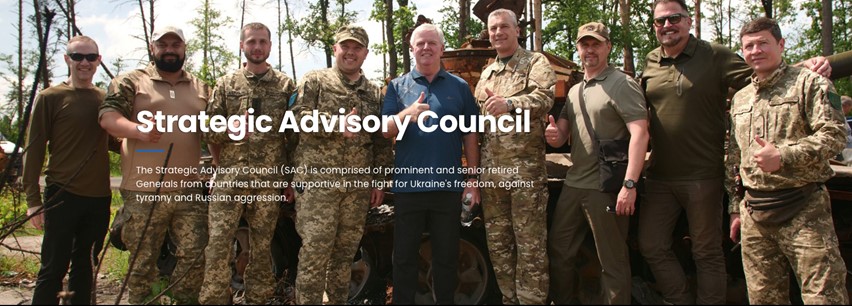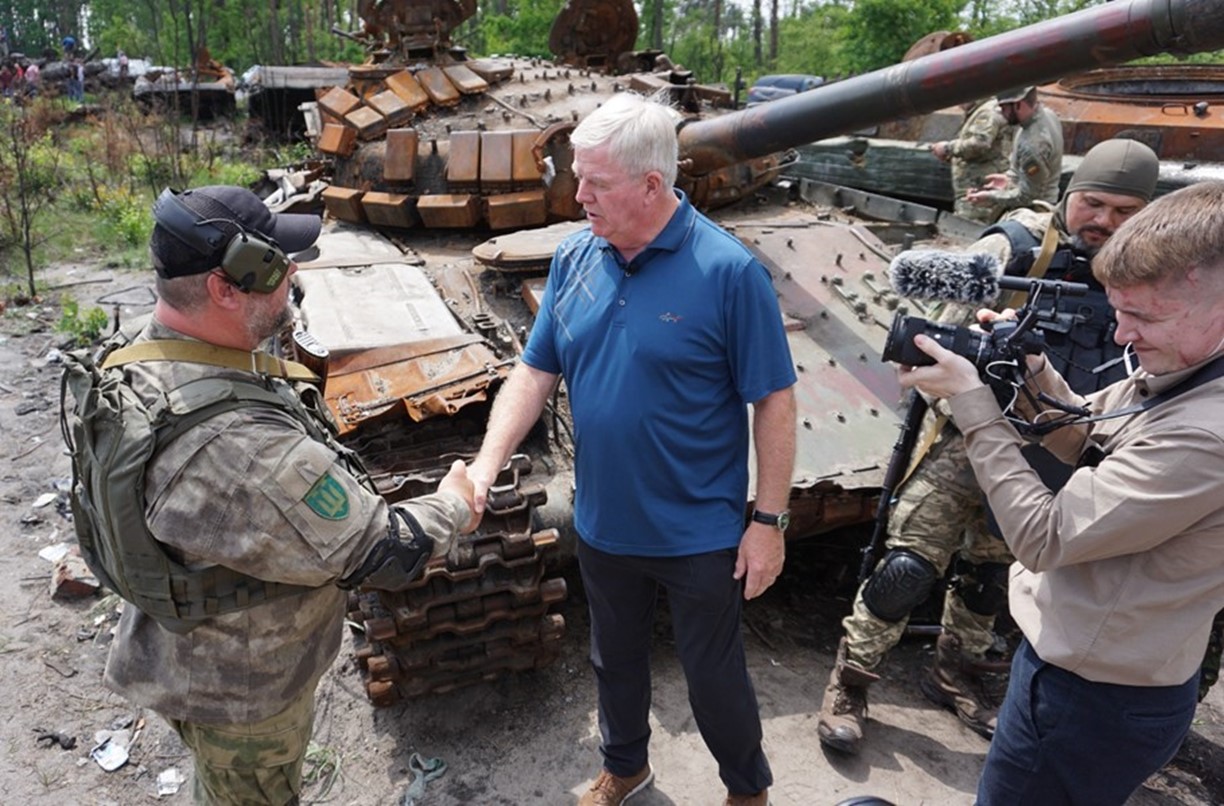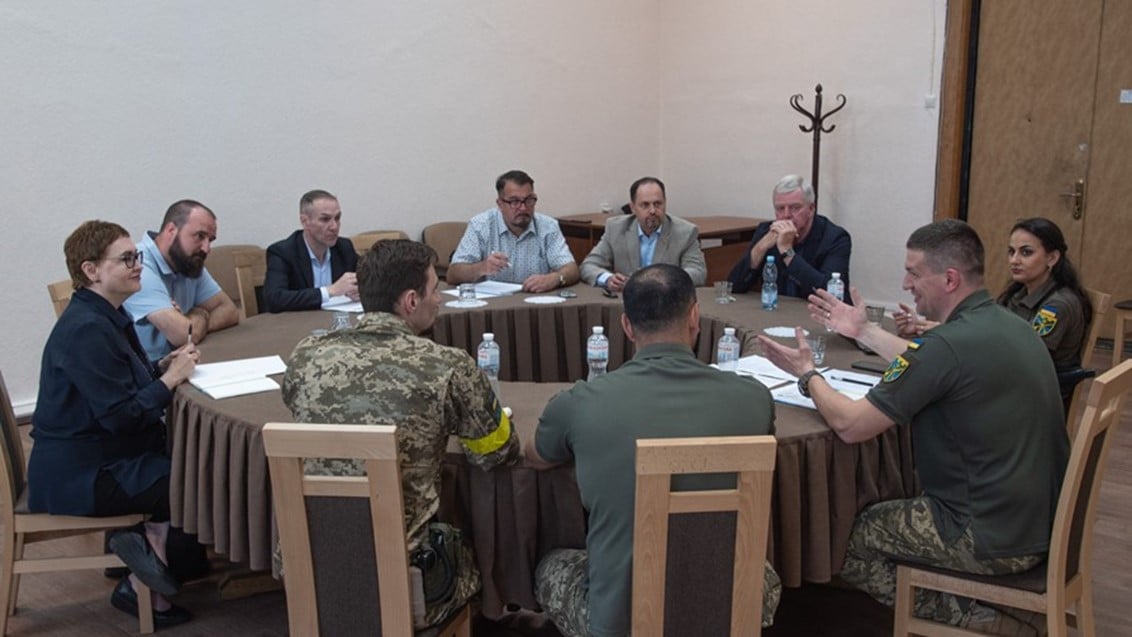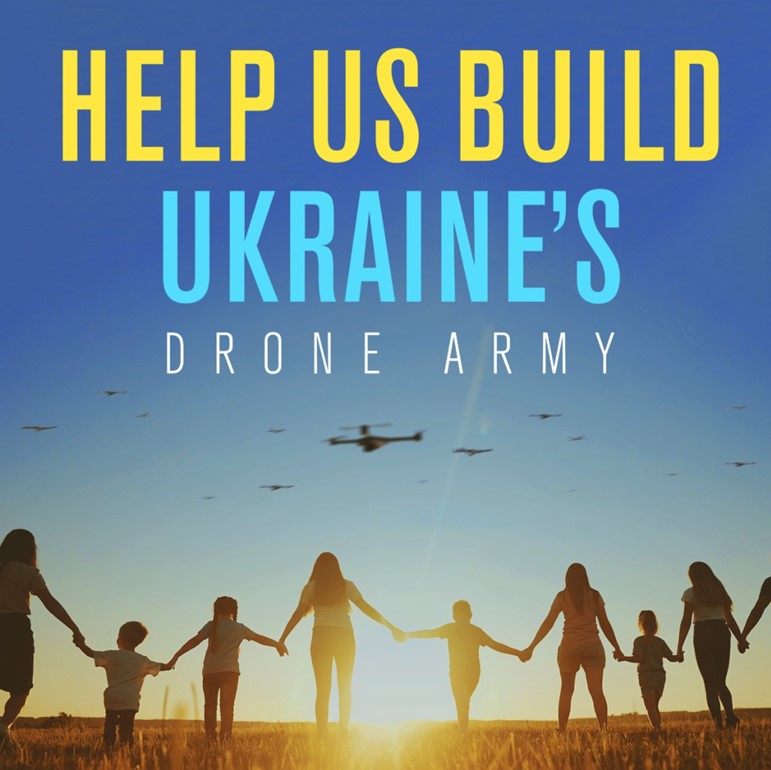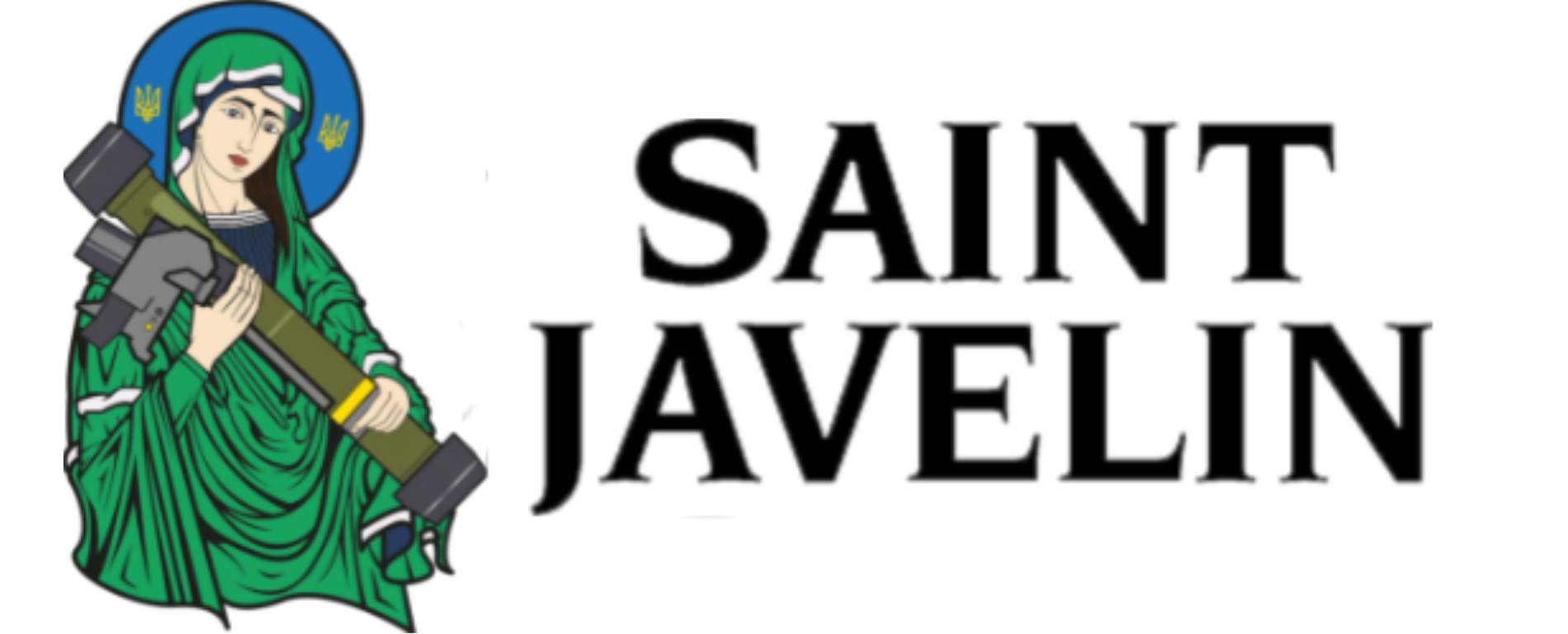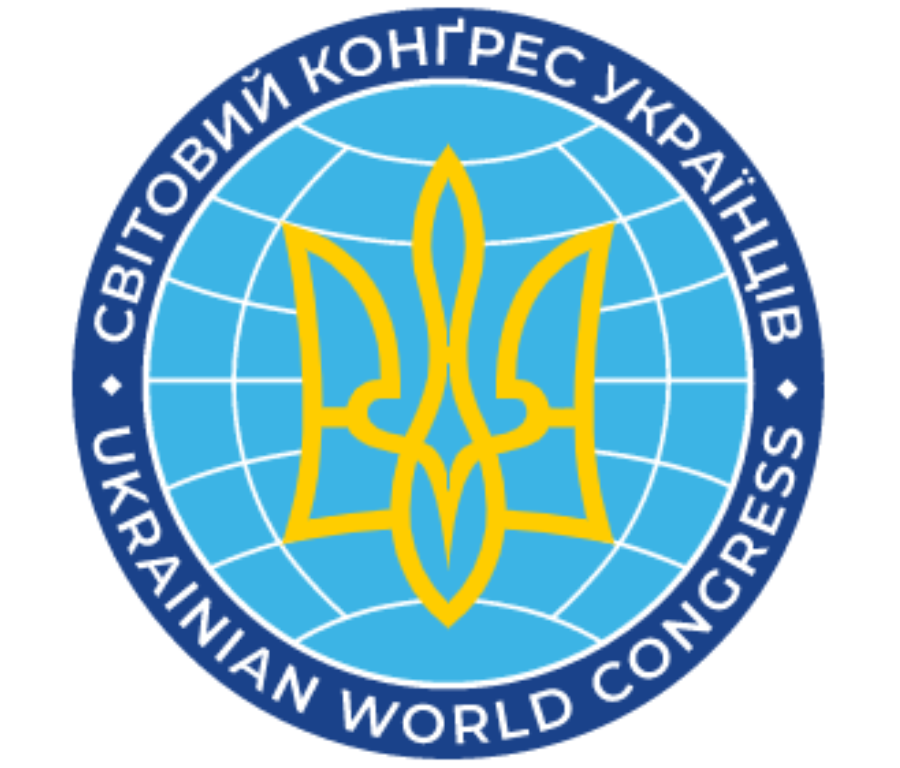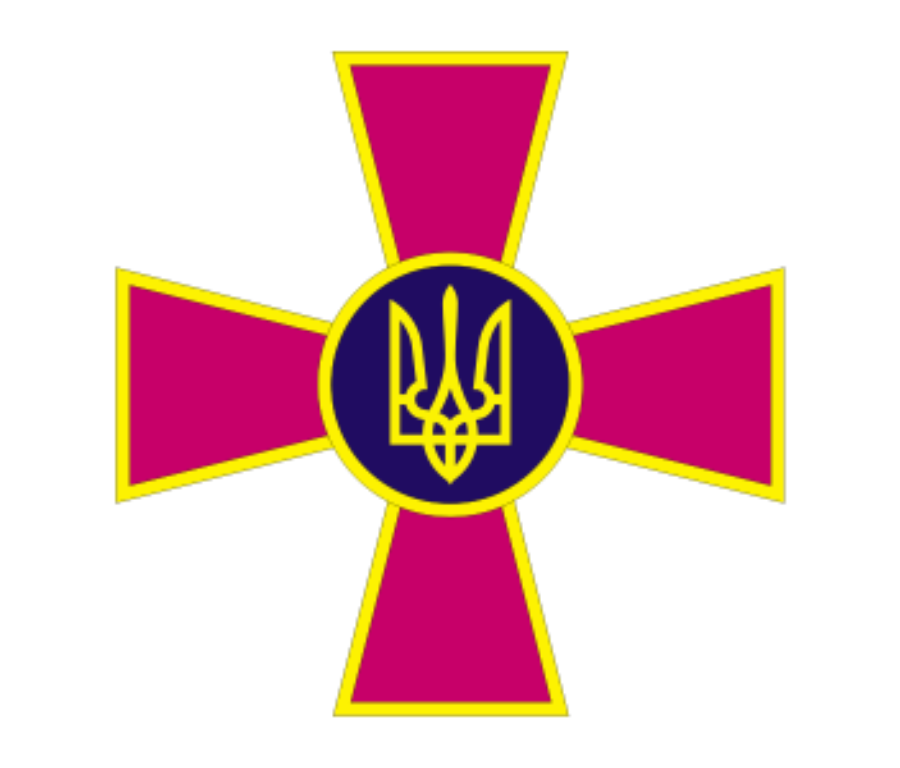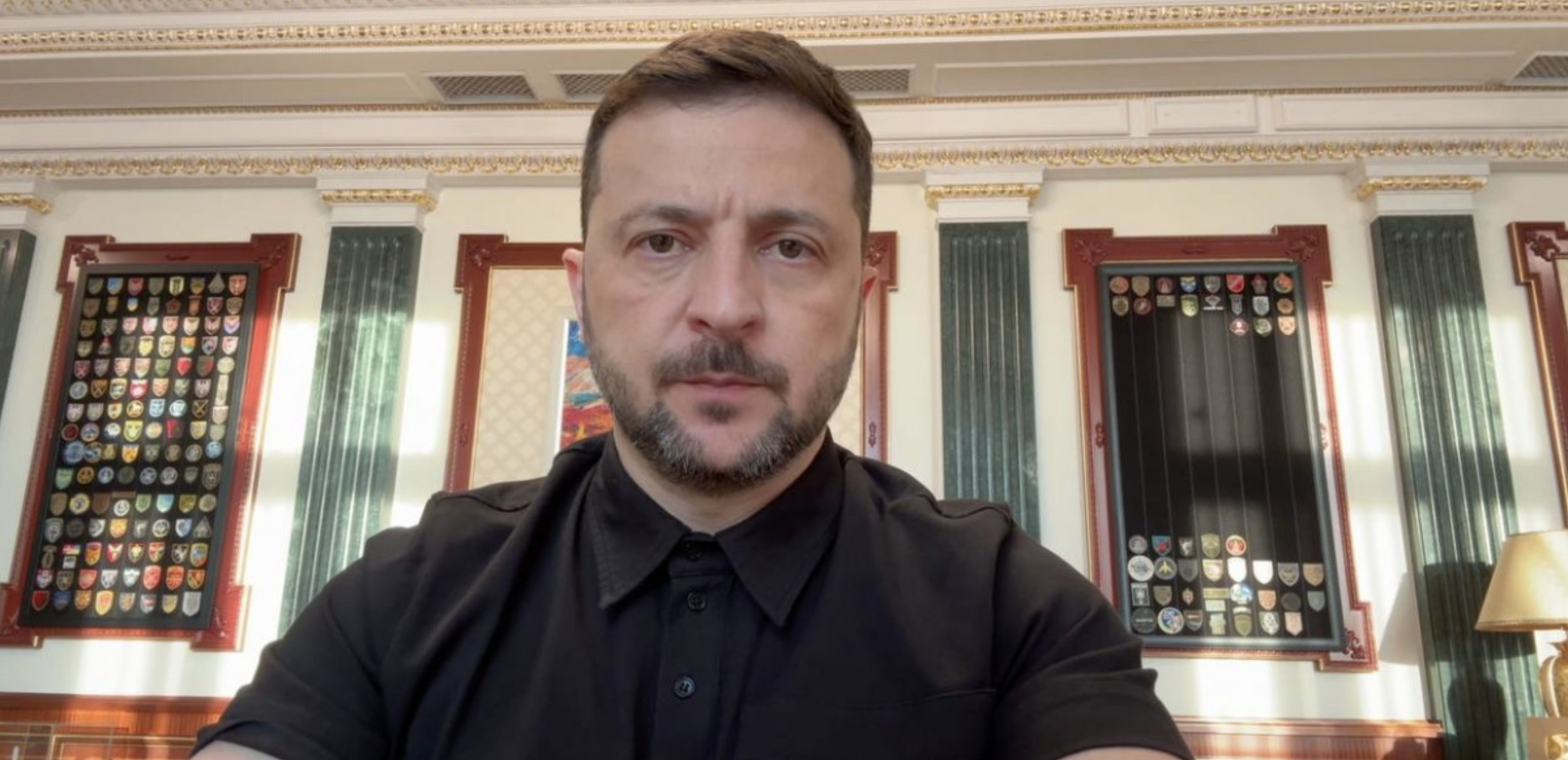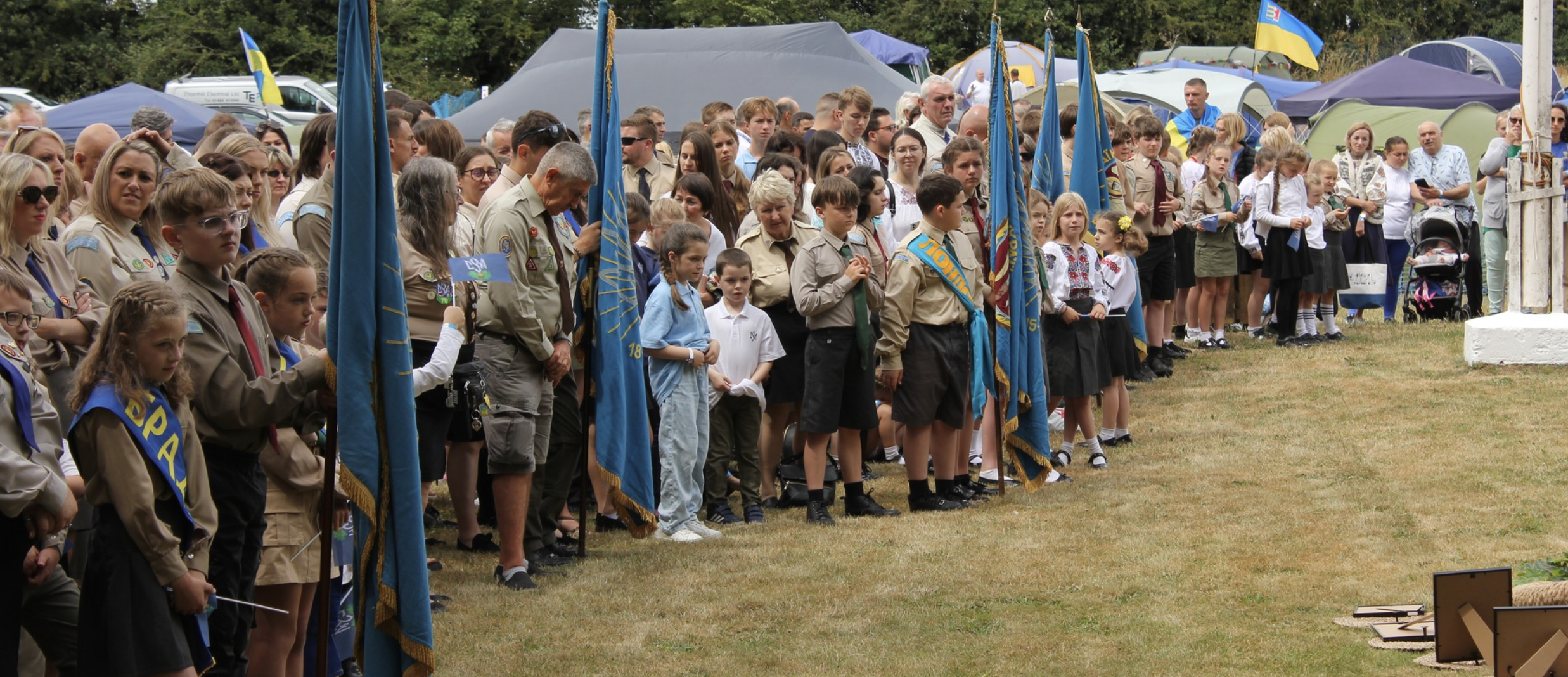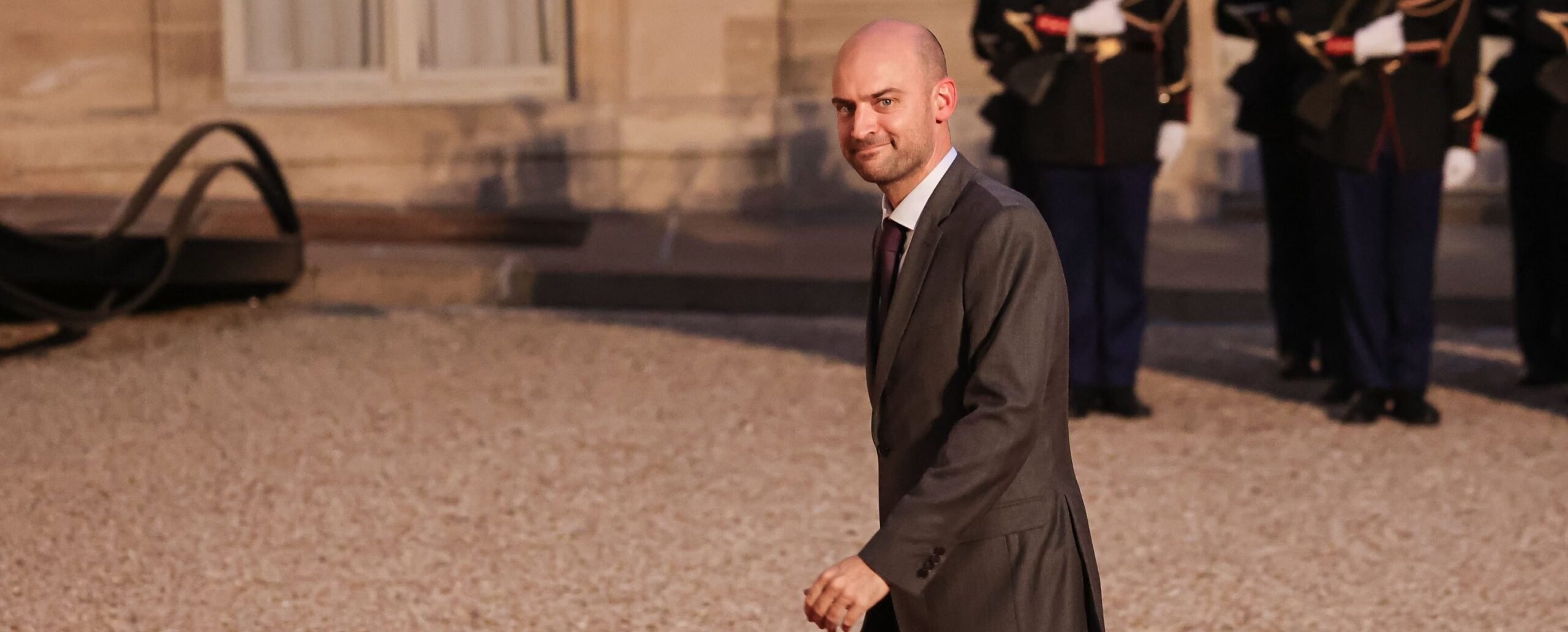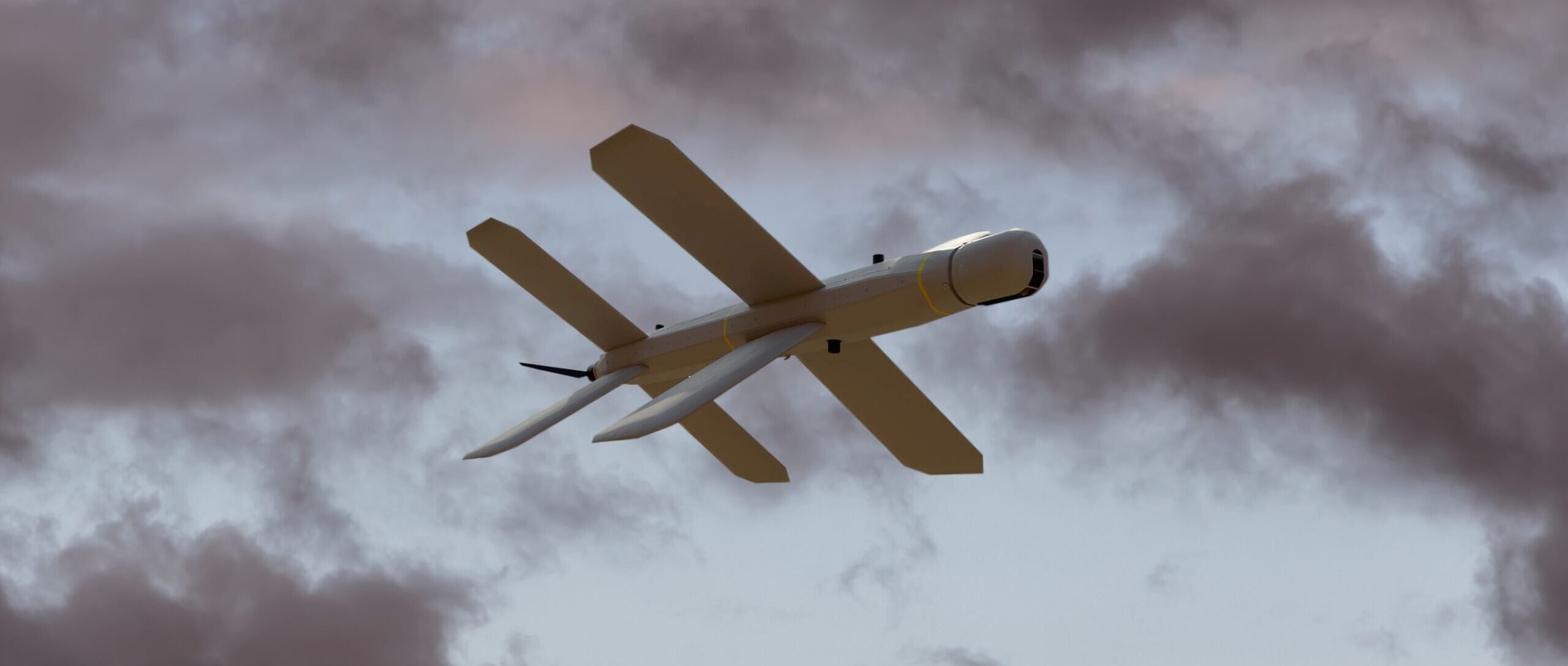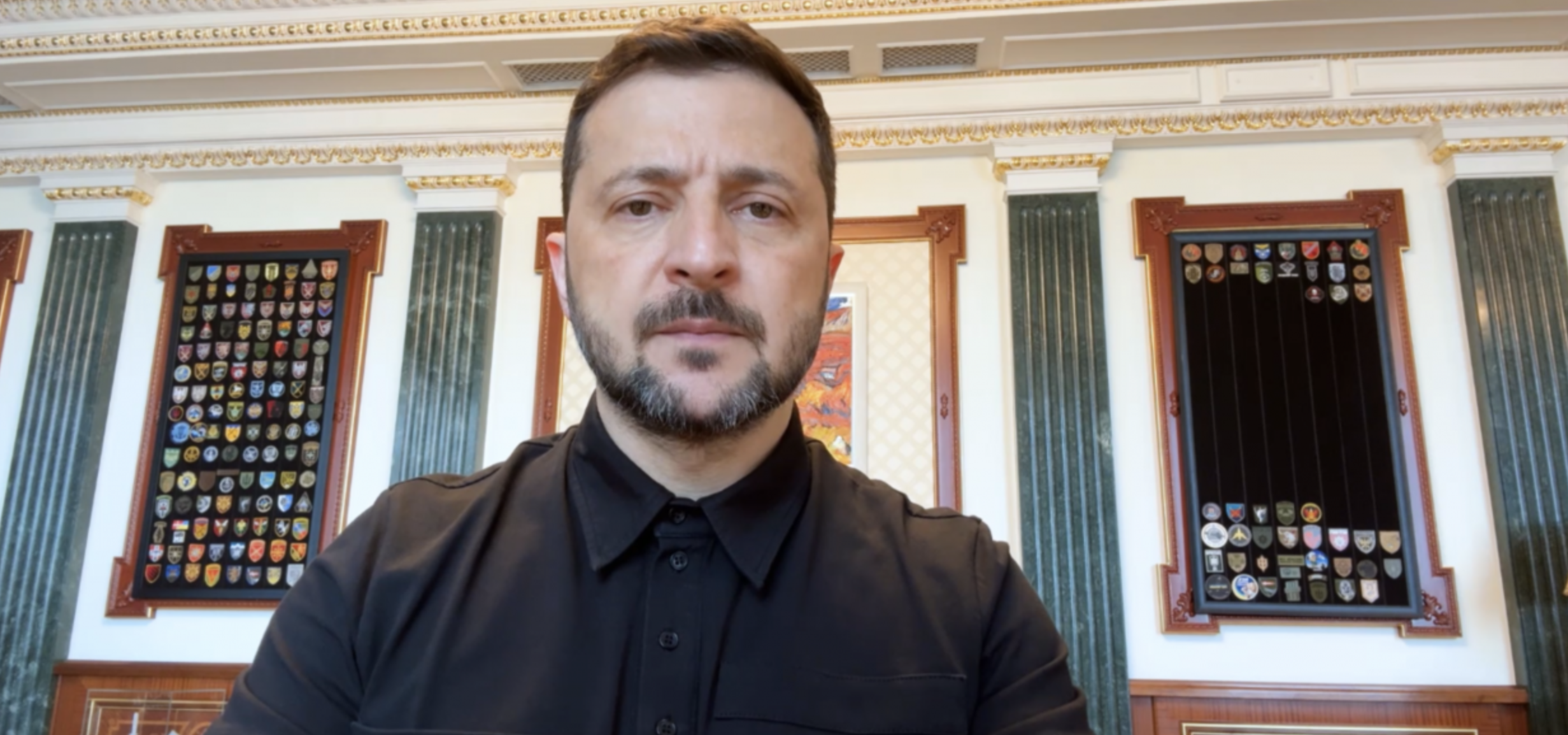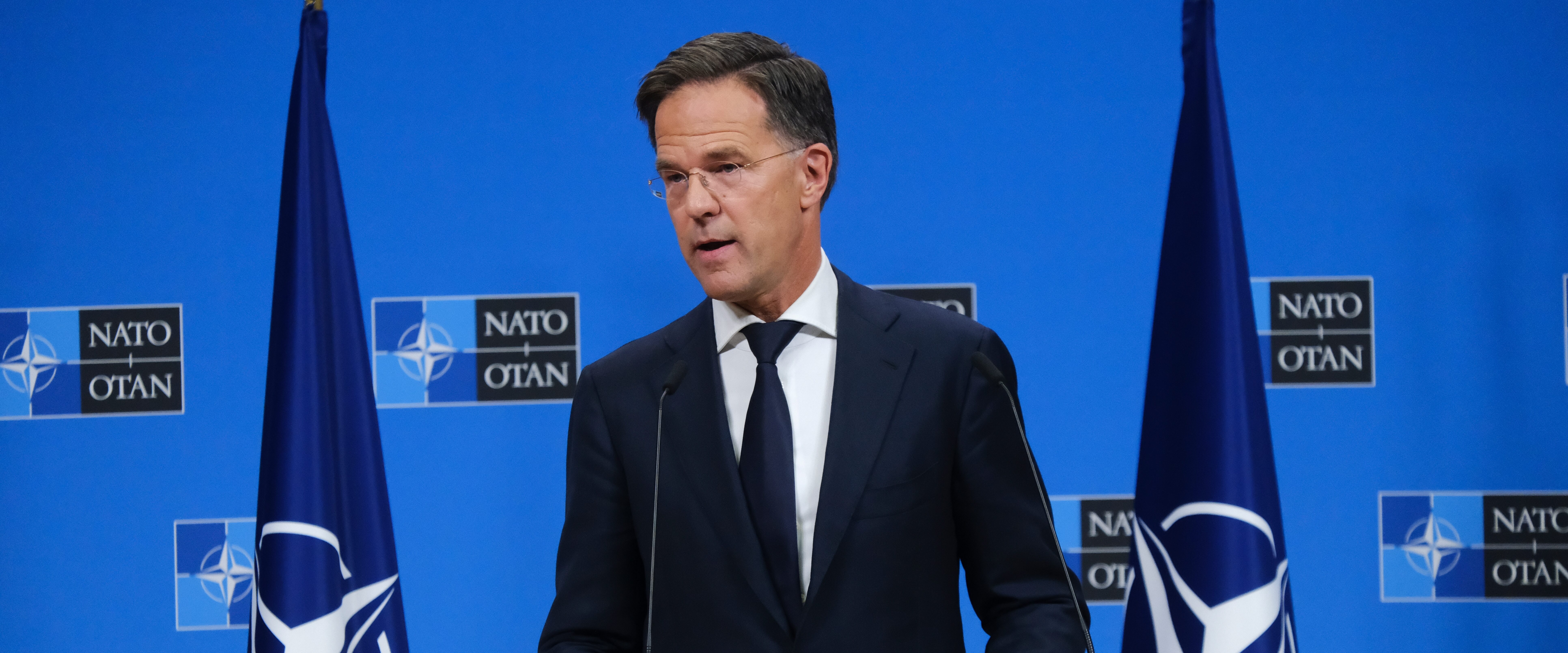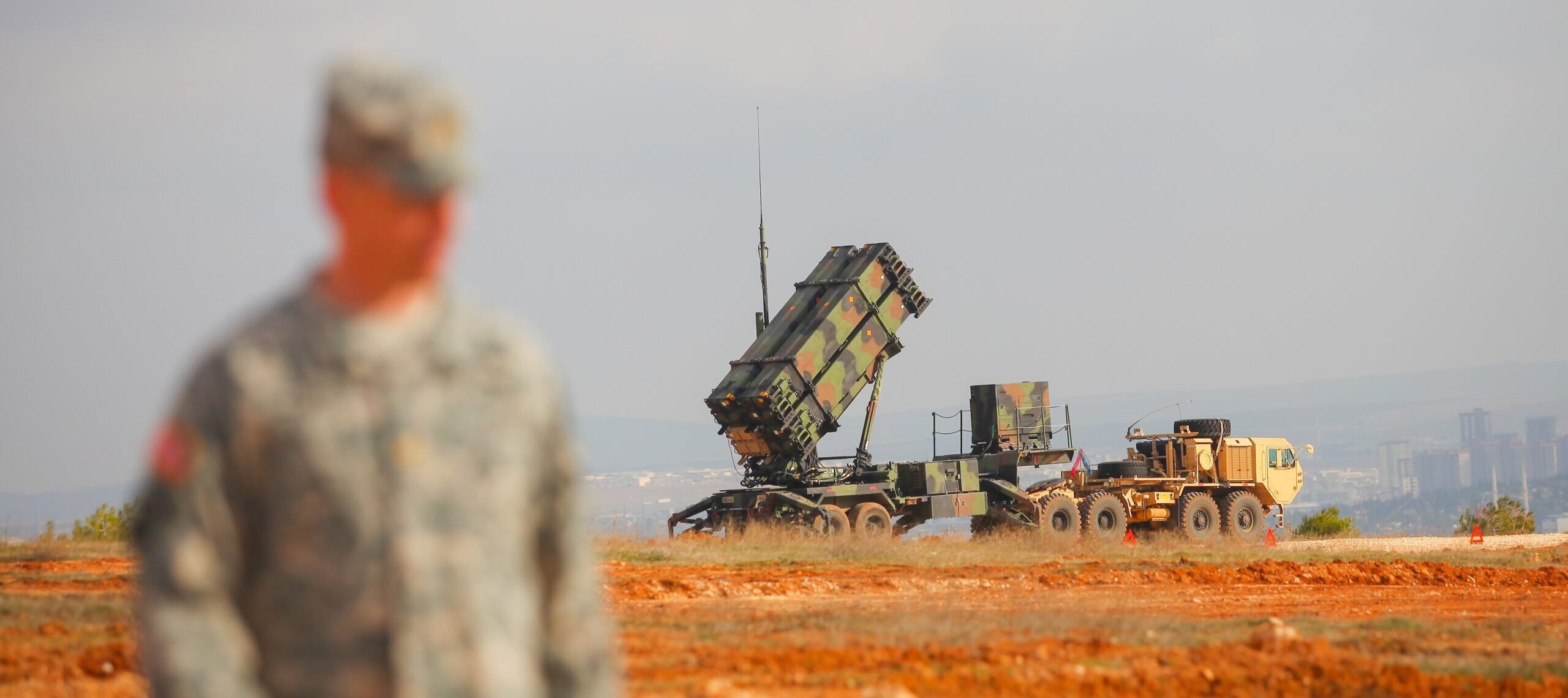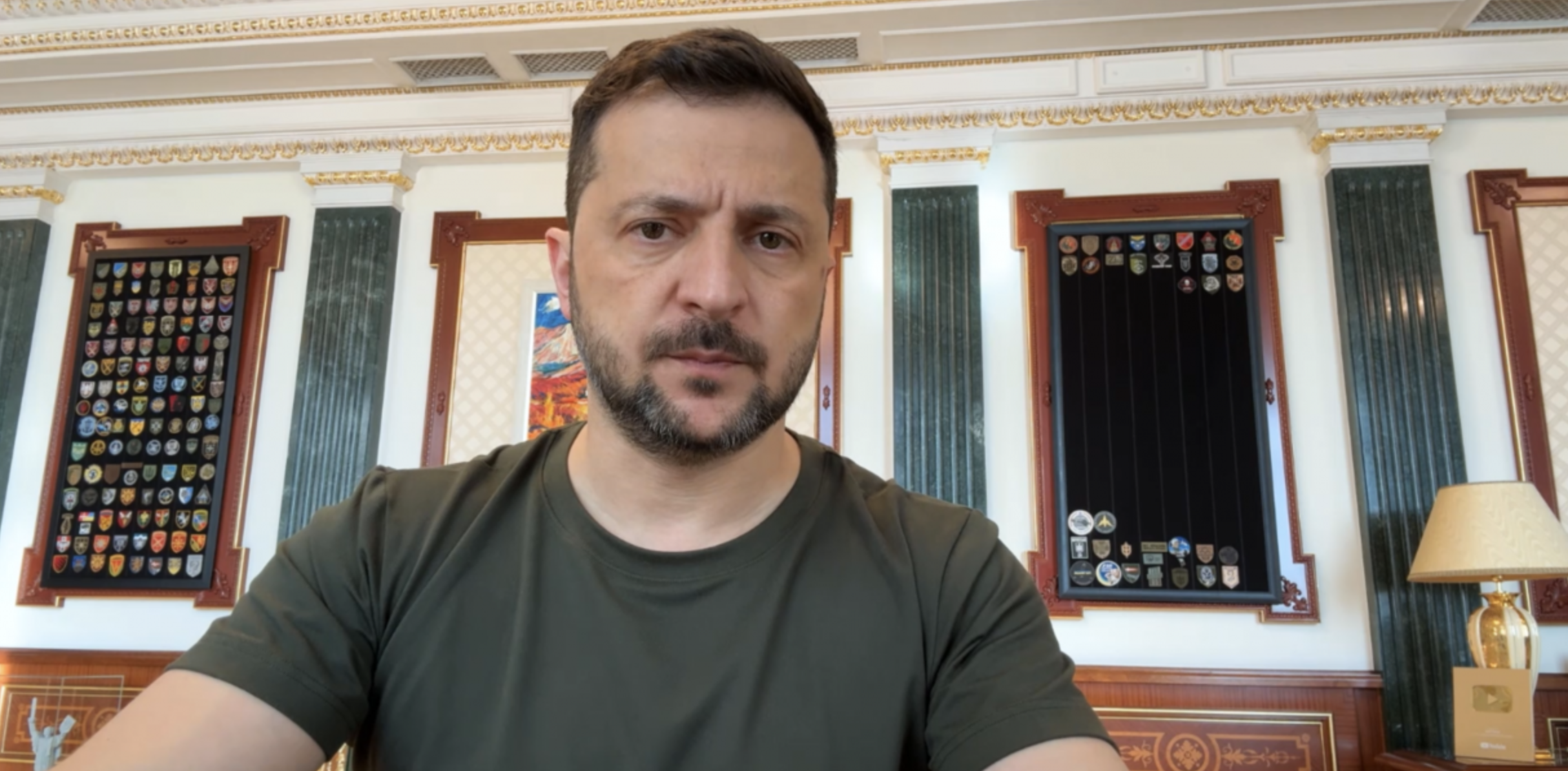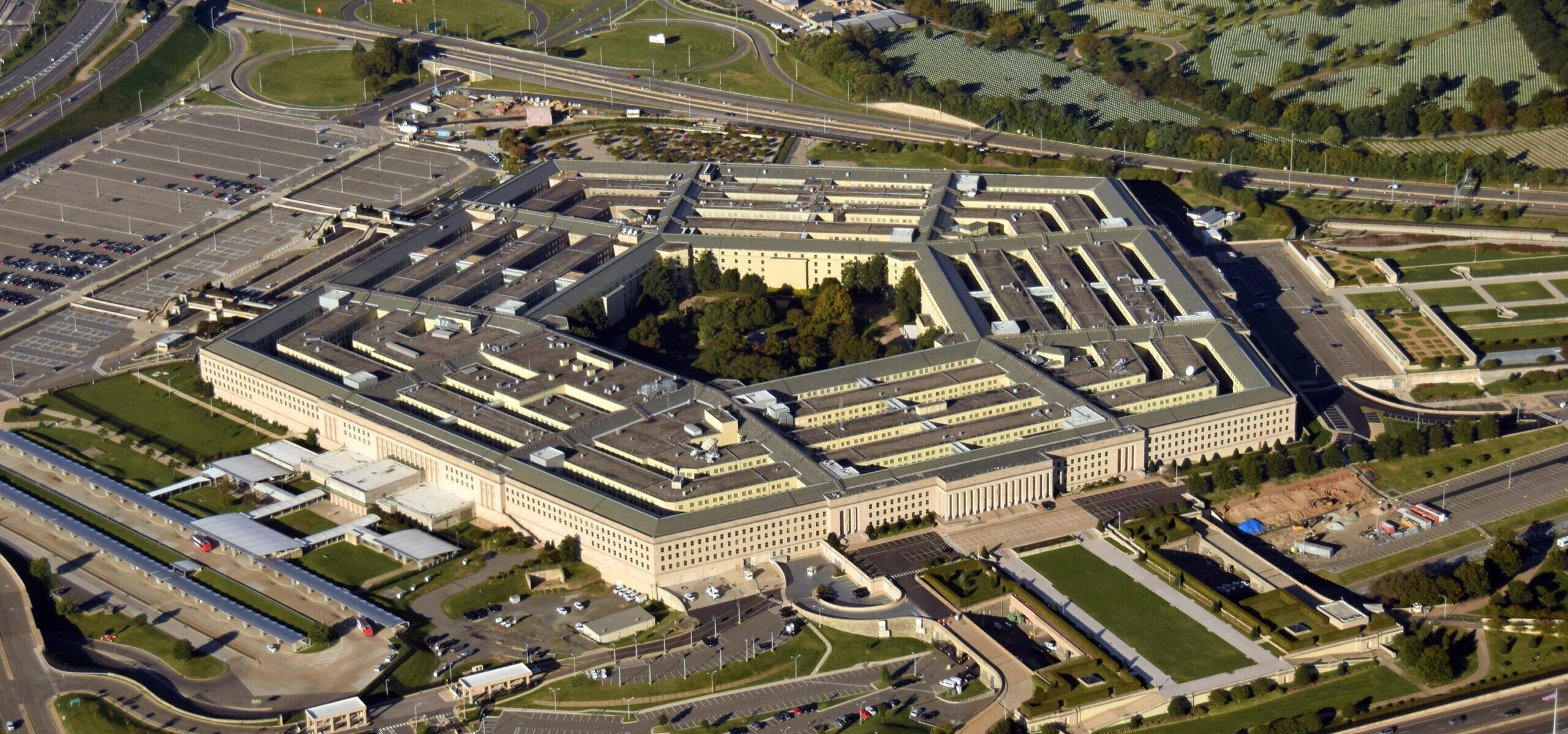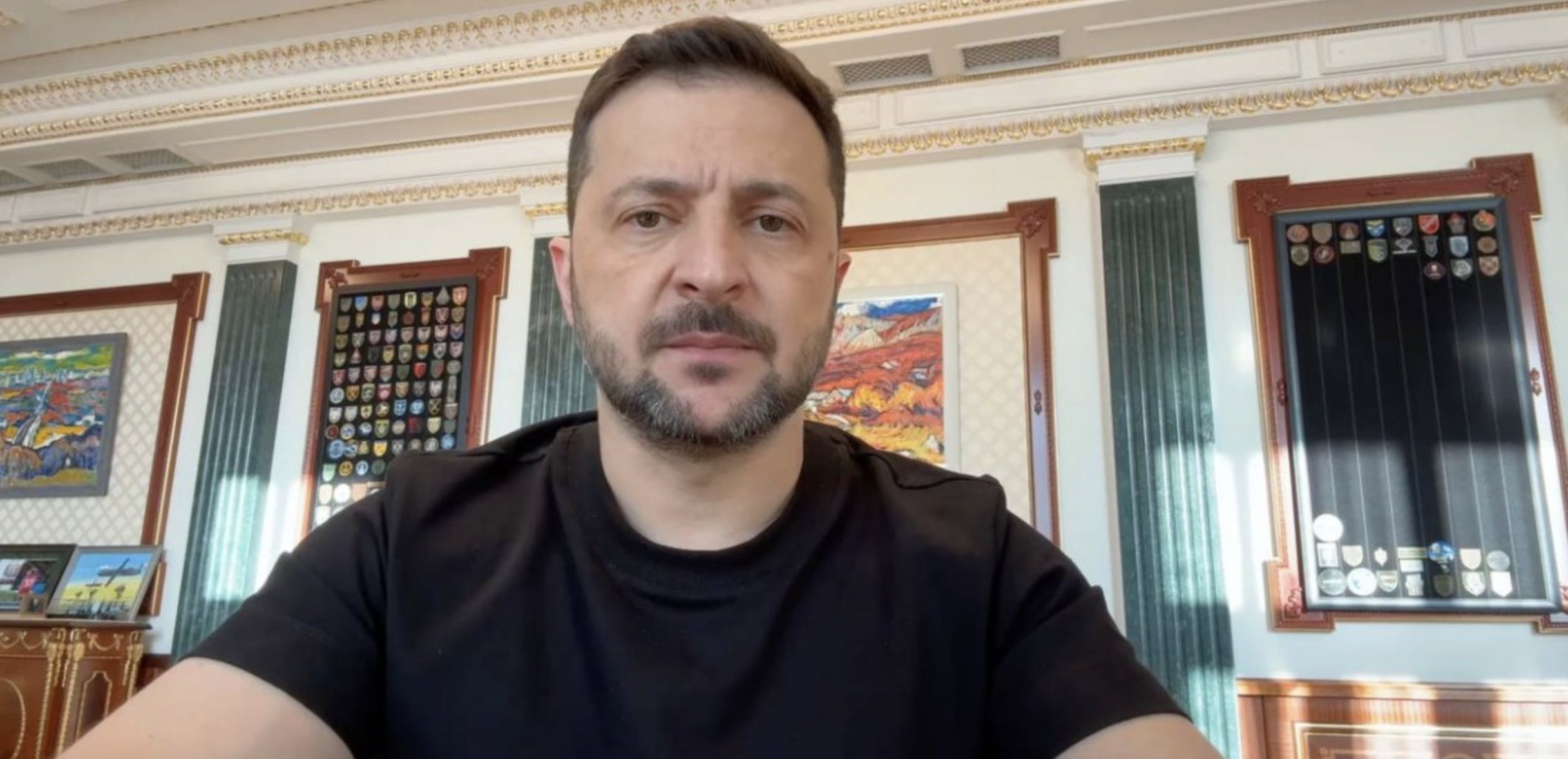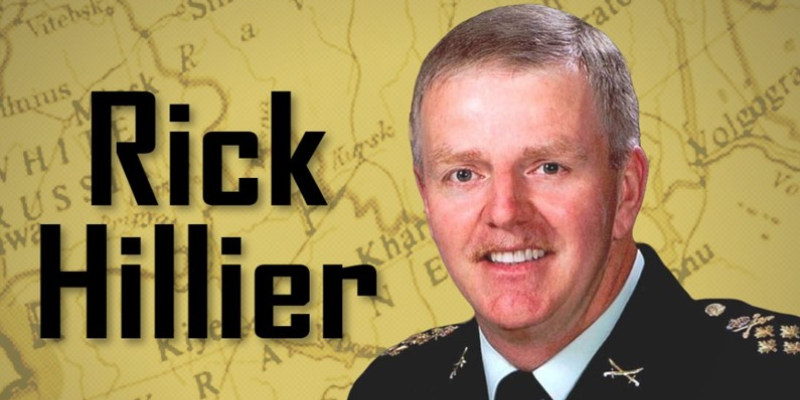
Assessing The Military Situation in Ukraine with Retired General Rick Hillier
What can Canada do to support Ukraine when our military is under-resourced and political leadership is missing in action. General Rick Hillier looks at the big picture on ‘No Nonsense.’
Pamela Wallin
The situation in Ukraine continues to worsen in many ways. The estimates are now about 600 people a day are being either killed or injured. There is some good news in the sense that Odesa, the big port, was unlocked this week for a few shipments of their green supplies out. So there is progress on some level, but this is still a very dire situation. So we’re turning now to General Rick Hillier. He’s retired, of course, Canadian forces general. He was the Chief of the Defense Staff in this country from 2005 to 2008, and he was a soldier’s soldier. And so he has served and seen what action on the ground is really like. He’s also now chair of the recently assembled Strategic Advisory Council for the Defense of Ukraine, which also has members like West Clark, David Petraeus, big American generals who have overseen operations, and they’re supposed to be providing strategic advice, operational assistance to Ukrainian forces. So welcome, General Hillier, it’s wonderful to have you with us here.
General Hillier
Hey, Pamela. Thanks very much, my pleasure, truly!
Pamela Wallin
So what if you were having a meeting this morning with the Strategic Advisory Council and you were talking to the Ukrainians, what would you say about the state of play?
General Hillier
Well, the first thing I’ve been doing is asking the Ukrainian Defense Forces, what are your priorities? What is it that you need most? What is your greatest need that is going to enable you to be more successful against those Russian invaders, to stop them in their tracks, to cause them to retreat, and eventually to cause them to abandon the parts of sovereign Ukraine that they have taken over and want to control. And that would be it. But clearly, tell us your priorities. They’re at war. They’re fighting a war for survival. They’re defending their families, their homes, their communities, their nation. And those priorities change on a daily basis. And sometimes in the nations that look to support them, that causes confusion. So trying to get clarity on the absolute priorities and then seeing how long those priorities will last will be the most crucial thing of all. I think we could get from them. And then we could help advise them on how to meet those priorities in a variety of ways. Whether that’s through private donations from private individuals, corporations, or by advocating to certain governments in the Western world.
Pamela Wallin
So, for example, we all witnessed in our own country the decision by the government to return to Germany or to Russia via Germany turbines that were being repaired in Canada because the Germans said to us, we need the energy, we need the oil and gas, particularly from Russia. So you need to violate your own sanctions and send these turbines back. Was that one of those tough, difficult decisions in which you have to do something you don’t want to do to help an ally so that they stay on side?
General Hillier
I don’t know if it’s a decision that we had to make in that manner. I think we got played like a bunch of amateurs, not just Canada, but the EU and Germany, by Putin and the Russians. I mean, obviously, as Canadians now know, as soon as Canada had made the decision that we would break sanctions and return those generators, Putin then announced that he couldn’t supply gas to Germany and the EU anyhow. So I think he played us like a bunch of amateurs. We fell for it. And my concern was simply that that’s the first major break in those sanctions that we’ve seen in the Western world, and six months from now, ten months from now, will we be looking back and say, the sanctions have all but disappeared? We’re going to be back to where we were in 2014, where Russia invaded Crimea and then had some sanctions, but then those sanctions essentially disappeared. And will the first step in that be seen to have been Canada’s decision to return those gas turbines? I think the decision was wrong. It might have been made for very honorable reasons. I don’t know. I’m not involved in that but we got played by Putin and his henchmen.
Pamela Wallin
So that’s, I think, what a lot of people fear, that, as you say, this is the first crack in the alliance response and that others can now justify it because of the dire need for food or the dire need for energy. So how do we or can we put the brakes on that? I mean, certainly President Zelenskyy couldn’t have been stronger, in his words, to our prime minister and to the allies in general.
General Hillier
Well, no, he couldn’t have been stronger. He called it very clearly, and he said, the decision is wrong and it is not irreversible, though. And Canada could reverse that decision. Of course, by then, a few hours later, Putin had already played us by saying he wouldn’t turn the gas on anyway. I don’t think that we can put a stop to a diminishment of the power of those sanctions, we haven’t seen a change in it yet, I hope it continues that way. But countries eventually will start to look at things differently for a variety of reasons. Whether that’s fatigue with the war in Ukraine, whether that’s a belief that there is no way Ukraine can actually win the war, and that we’re going to have to give it to Russia or leave parts of Ukraine to Russia, and they’ll start doing things for their own national benefits. And then you’ll get a rapid crumbling of those sanctions again, similar to 2014, I believe. I think President Obama back then called it, he wanted a reset in the relationship with Russia, which I think Putin just took to me and said, hey, I’ve got a free card now to do whatever I want, because sanctions will only last a short while. So I don’t think we can stop those things crumbling once they start. I’m just hoping that we didn’t cause that to start, and we’ll see evidence of that in the near future.
Pamela Wallin
Your belief, I would take it, is that we should have responded in 2014. We should have responded in Crimea, in Georgia in any number of places and drawn a bit of that red line, because in some senses, we’ve let this happen so that Putin can feel confident and cocky enough to do what he did in Ukraine.
General Hillier
Well, I think Putin, but then beyond him and beyond the circle of cronies around him, out to China, out to North Korea, out to Iran, have been assessing the leadership of the west throughout all of those things in 2014, the invasion of Crimea and the rather tepid response that didn’t last for very long, and then it was over and done with. We’re back to normal relationships with Russia, those carried on, but also, I think they watched the West and the leadership and drew an assessment that the leadership was weak, specifically last August during the actions in Afghanistan when the Taliban took over the country, and we were trying to get the people out who would serve Canada and the West, it was anemic their response at the time, and it was clumsy, and it sure did not demonstrate strong strategic leadership, strong leadership in any facet. And I think Putin made a decision then, okay, I can deal with those kinds of leaders because they’re going to back down. At the very least, they’re going to mouth strong words and strong things, but they’re not actually going to do them or not do them for long, and I can win. And I think that played hugely into the decision to invade on 24 February in this new stage of the war in Ukraine.
Pamela Wallin
It’s the same kind of signal that many people are concerned about, with Speaker Nancy Pelosi going to Taiwan at odds with her own President, and the President saying, we’ll never recognize independence. We seem to be sending an awful lot of mixed signals to the people who can cause a lot of trouble for us, Russia and China.
General Hillier
Absolutely, as we try to do things now to recover from our lack of strength, to start with, in some cases, I’m just surprised that Putin, China, North Korea, hadn’t done even more to sort of set the cat amongst the pigeons. So, for example, I’m just absolutely surprised that Russia has not had a bunch of nuclear submarines surface at the North Pole, plant their flag and say, hey, this is ours. And if that occurred, I don’t think Canada would have much support around the world by saying, no, it’s ours, because we really don’t have that support. And so I think those kinds of things will now continue to play out. They’ve tested us. We’ve been found wanting in many aspects. Some of the areas, we responded well from the West, but we were found wanting. Our leadership was not found strong, and that will continue to play out in international relations for a long, long period of time.
Pamela Wallin
What can we do? I mean, our military, and I’m pretty sure you’ll agree on this, has been under-resourced for a very long time. And then we are asked to send supplies and not send people directly into the region, but into the surrounding region. And I knew a couple of the young soldiers that were there. They still don’t have helmets that would actually protect their heads if there was any exchange of gunfire. And this is pretty basic stuff, and we’re being asked to try and help supply Ukraine in many different ways. Are we sending the right stuff? Do we have the right stuff to send?
General Hillier
Well, I think there are several approaches to this that could be much better than what we’re actually doing. So no, I don’t think we’re sending the right stuff, or certainly if we are sending some of the right things, we’re not sending enough of it. I would just give you some examples, and I had mentioned this publicly before that I think Canada and our government and our nation should take a whole bunch of our fighting vehicles from the army, 200, 250 of those LAV threes or LAV sixes, that we have excellent fighting vehicles. Combine that with, say, 50 of our Leopard two main battle tanks, among the best battle tanks in the world, with reconnaissance vehicles and engineer vehicles, put together a spare parts package and an ammunition package and give that to Ukraine so they can actually start to build a large reserve counter attack force. And then at the same time. What I would suggest we would do is challenge General Dynamics Land Systems, that center of vehicle manufacturing excellence for fighting vehicles. Challenge them to replace those vehicles within the next one to two years with even better vehicles. And so improve the Canadian forces while we’re helping Ukraine in a very real way. Because Ukraine right now, their defense forces, they cannot constitute a reserve. If the Russians should break out in the breakout in any one area, it’s very difficult to counter a breakout because they don’t have that reserve, and a reserve then could be used in a counter attack to actually make a and make some gains and take some villages back. We could do that. And if we decided to actually take that huge step and give those vehicles, because many of those vehicles are not being used by the army right now, they’re understaffed, the number of soldiers that they have are way down. The amount of training that they’ve been able to do is certainly minimal. And we could do this and not destroy the Canadian forces. But at the same time, there’s another option, I think, and there’s actually two options. One is you can actually do, if you don’t want to do the equipment, do something that we’re really good at, do training. And the other thing that training and defense forces need is training right from individual soldier level through collective training at platoon, company, battalion, even brigade level. And it doesn’t have to be all Canadian forces, we could contract a Canadian company to do this and do it in Poland and use those retired NCOs and officers. We can do that.
The third option is we could combine the two, send over the fighting vehicles, put the training team together and do something that would have a real impact and help Ukraine win this war. I mean, Pamela, make no doubt about it, the war was finished through victory. We want to make sure that victory is Ukraine’s, not Russia and this would be a way that Canada can do it if we can’t do the equipment, do the training and if we could do the equipment, do the training also and make that just an incredible one, two punch.
Pamela Wallin
Can that actually happen? Can you get Ukrainian soldiers in and out of the country? Do they have very limited resources? Do they have the ability to do that? I guess I’m saying, do they have time to stop and train or is this just they’re in the fight for their life right now and they just have to say whatever the consequences may be?
General Hillier
Well, one of the things you have to do, and any soldier understands this, it doesn’t matter if you’re in a fight for survival or in a fight to liberate your country, you have to continue training. You have to actually take the lessons that you’ve learned in the fighting that you’ve done so far. You have to incorporate that into your training you have to make sure that the replacements that you’ve brought in to replace those who have been wounded or killed are trained as individual soldiers, trained as teams and you can do that. Ukraine can do this. They’ve got a train system, a transportation system running into Eastern Europe, running into Poland, running into Czech Republic training is already occurring there. The United Kingdom is going to train 10,000 Ukrainian soldiers in the United Kingdom and so they’ve got the ability to move it. I think Canada could really step up in this domain and do something that would have a lasting impact. We were a lead part of Operation Unifier for almost seven years. Just over six years ago, we put NCOs and officers in Ukraine and Eastern Europe to help train Ukrainian defense forces from 2015, I believe it was onwards, that made a massive impact and a part of the success of the Ukrainian defense forces that we’ve seen over the last five and a half months is due to that incredible training. Why don’t we continue to build upon that? And yeah, I’d love to see the equipment go but if we’re not willing to do that, let’s step up on the training in a huge way. We can do it in Poland, we can do it in Canada and we can do it in western part of Ukraine probably right now but if not very soon for sure.
Pamela Wallin
So why is there resistance to that? What does the government say to you when you make these proposals?
General Hillier
Well, everything is very difficult to do, that’s for sure. I think there are some good intentions but they have not been translated into actual action and I think also and I’ll say this causes me great concern, not just in Canada, but Ukraine now is getting further and further and further away from the sort of public consciousness. It’s not on the evening news every night it’s not even a sixth story or seventh story. It’s just not a story at all for the most part we’re not seeing if you will call exhilarating videos of UAVs or drones attacking tanks and special forces teams doing great things. We’re not seeing that because the fight in eastern Ukraine is very different now. It’s just really a slug fest and so it’s not in our consciousness. We’re all concerned about inflation and post pandemic and travel and Pearson Airport being a mess. It’s really hard to get a government to focus on doing something of this nature when so many other things are occupying their time right now.
Pamela Wallin
And there’s no direct political benefit from it as they see it, I guess?
General Hillier
I fail to understand that everybody keeps talking about we have 1.5 million Ukrainian Canadians in Canada and I’ve met hundreds if not thousands of them in the last several months. They’re all successful businessmen and women hard workers. They vote and they carry a huge weight and influence in our nation and surely to goodness any government would first of all look to their own interest and that’s what political parties do obviously would see a value in having that 1.5 million think they’re doing a really good job and want to support them in any future election.
Pamela Wallin
I would think so too but I guess it’s not in the writings that they’re concerned about at this point. I want to come back to a couple of points and we’ve discussed this but the sort of dividing it up the school that says look, the Donbas is sort of disputed territory and maybe what we should do is just give the Russians a chunk of that and maybe they’ll go home and the Europeans continually are talking to Russia about these things. It’s hard for me to imagine it’s hard for me to imagine in some dispute that we would just say oh yeah, take western Canada that’s not a problem. Or take the East Coast, who really cares? We can get fish somewhere else. Is that viable do you think that is, in the end, where we’re going to have to end up?
General Hillier
No I don’t but I am really concerned that we may and I’ve been very cynical on this part of it and my view is I watched the western nations many of whom are lukewarm in their support. They’re strong in words and lesser actions, and it’s words, not deeds. I’m really worried that if Putin all of a sudden said, “okay, we’ve accomplished everything we’ve needed. We’ve gotten rid of those Nazis, we’ve taught them a lesson. We’ve liberated the Russian loving peoples of the eastern part of Ukraine and Crimea, and we’re going to stop right here, and we’ll dictate the future of Ukraine from where we are. And I’m willing now to have a ceasefire.” I worry that he stood up tomorrow and said that half of the western world would throw Ukraine under the bus and we would be stuck in that position. And I just like to say, hey, what if the United States of America said, oh, there are so many Americans in southern Ontario. We think it’s ours, and they should have the right to choose, and they’re going to be a part of it? And would we accept the fact that another nation was going to take a part of our country? No, we would not. Ukraine will not do that. And I think the West, if we put any store by what we call the rules based international order and doing things according to the rule of law, then we wouldn’t accept it either. And I think we’ve got to really guard against any tendency to say to Ukraine or pressure Ukraine, well, you should take this offer because it may be the best one you get. I think the Ukrainian Defense Forces, if they’re supported appropriately from the West, can actually stop the Russians. They can defend their families and country, but they can also eject the Russians. And it’ll take a period of time. It’s not going to be a short war, but I think they can cause it to be so painful for Russia that Russia eventually will want out in one way or another. But the West has got to support them.
Pamela Wallin
I want to get your assessment on that because we read endlessly on this, I’m sure you do too, that Putin just didn’t, maybe he thought this was going to be a lot easier than it was, that he was going to go in for a few days and kind of clean up this mission. And now he’s realized that that’s not the case, obviously, and he views his own military as dispensable. He’s got millions of people to rely on, or that he can force into action and service. Then you’ve got the spirit. And as you say, if we keep our act together and our eyes focus, we could help arm and you’ve got the spirit of the Ukraine. But the Russians are a big mammoth force. Can Ukraine really push them back?
General Hillier
Yeah, I think they can. And it’s not going to be easy and it’s going to be very expensive in terms of human life and destruction of whatever remains of the towns and villages that are out in eastern Ukraine right now. But, yes, I think they can. I was in Ukraine in June and got the opportunity to meet with so many of the leaders and the individual soldiers and the citizens that are fighting for their lives and their families. Oh my goodness, they do not lack courage, they do not lack determination and persistence and they do not lack a will to defend their country to the final moment. What they lack is the equipment. And when you combine their characteristics with the right kind of equipment, anything is possible. And a perfect example of that has occurred over the last two weeks here when finally the Ukrainian defense forces have received the HIMARS from the United Kingdom, United States, and now from Germany. And that precision fired long range missile system that can ‘shoot and scoot,’ fire to missiles, move quickly so counter battery fire can’t destroy them. And they’ve taken out the strategic targets that they wanted to take out, the ammunition depots for the Russian artillery. And Russian artillery outnumbers the Ukrainian artillery like 10/12 to one. And so they were killing those Ukrainians. You talk about 600 casualties a day, maybe 200 dead and 400 wounded. They were killing and wounding them mostly with artillery. All of a sudden since that equipment arrived and those depots were targeted and blown up, some 50 of them if you believe all the reports, and they’re probably close to accurate, then all of a sudden now that artillery fire is dropped to almost nothing and the Russians are going to have to restock. So yeah, I believe Ukraine can do this. They’ve got the will and they’ve got part of the capability in the people and the ingenuity and the innovation and that’s been incredible on the ground. And if the West can support them in the right kind of equipment, then they can do the job. And we’ll keep Putin at the eastern side of Ukraine rather than face him on the eastern side of Poland or Czech Republic.
Pamela Wallin
What about the shipment out of Odessa that has opened up a little bit. I think we’re all still waiting to see how long he’ll let that carry on. It’s very important that Ukraine’s crops get out to all sorts of countries, Europe, but also Africa and others. And we’re not able to do it because in the West we’re still very focused on green energy policies and restricting the use of fertilizers and all of those kinds of issues so that we might fill a gap there, which I’m not sure we can. How important is it to keep Odessa open and do you think it will stay open?
General Hillier
Well, I don’t know if it will stay open. I mean, I cannot predict what goes on between the ears of Putin, that’s for sure, and nobody else could either. I have mixed opinions on it, I guess, of whether Odessa, how important it is. First of all, it is important that you get some of that grain out and maybe get it into the nations where, if we don’t over the next month, we are going to see mass starvation or close to starvation occurring because Ukrainian wheat cannot get out. At the same time, I resent having to get Putin’s approval to allow that to occur. And I would much rather harm Ukraine with harpoon missiles in the hundreds and let them take out the Russian fleet and open up those ports and the seaways themselves and then let that occur. Then I have to get Putin’s sort of acquiescence to it. We might have empowered him by going that route, but it’s still a good thing we got to ship out. Hopefully I’ll keep it going, but I’m not sure that it will and I think Putin will call that, much as he did the gas pipeline to Germany will call that when he sees the value is going to come to him either way.
Pamela Wallin
Well, and you know, we still and you use the word cynical. I guess I have that tendency myself when we see political leaders saying, oh, this is Putin’s inflation, or it’s Putin’s food shortages and hanging, that most economists will tell you, we were headed down this road long before Putin went into Ukraine, but he’s a very convenient whipping boy for us now. Obviously, it does have an impact, but it’s politically convenient on one level for politicians to be able to blame him for the current economic ills.
General Hillier
It’s always nice to have a whipping boy, isn’t it, when you’re in trouble yourself or being criticized yourself. For sure, people do that, and political leaders will try to shift blame or sometimes accept it, obviously. I just thought strong leadership will lead to positive results in most cases. And I’ve said so many times to my friends and close acquaintances around me over the last several months that they’re tired of hearing it, that if we had Ronald Reagan and Maggie Thatcher as the President of the US and Prime Minister of England, none of this would have occurred, because Putin would have known right away that if he had tried something like this, he would have paid a terrible price immediately. He judged them completely different from Ronald Reagan and Meghan Thatcher, and the result is he’s invaded Ukraine.
Pamela Wallin
Yeah, the red lines needed to be drawn a little bit earlier, as we said back in Crimea time. I know you were working on this with bringing expats out of Afghans who worked alongside our forces. All of those things you reference are the bureaucratic nightmare. We couldn’t get people from point A to point B. We destroyed their documents and then said, you don’t have any documents. Is the exodus from Ukraine being handled any better in your mind?
General Hillier
Yeah, I actually think it is. And I was chatting just last night to some of the folks who have been very closely involved with that exodus and one of the things that I criticize greatly about the Afghan exodus was the form that somebody had to fill out in order to get Canadian support to Canada. It was so complex that even I would have had a challenge with it and English is my native language, and none of those people’s English was their native language. We have changed a lot of those things now. And for the Ukrainian refugees that are escaping the war, getting out to Poland or other countries and then wanting to come to Canada, it’s a relatively simple process. The forms are very simple and straightforward. So I think we have learned and applied those lessons, but we also now have some provinces involved and engaged here. We look at Ukraine, and I know my home province of Newfoundland and Labrador, premier Henry Fury, who stepped up and put in a position, an office, if you will, in Poland to encourage Ukrainian refugees who want to escape that war to come to Newfoundland and Labrador. We need the youth, we need the people in our workforce, and it’s working in a very real way. So I think we’ve done some huge improvements in the process right now, and I just want to see that kept going, and I’d like to see those improvements applied to the Afghan exodus because we did not do well there, and we left a large number of people in great danger because of our inefficiency.
Pamela Wallin
I get dozens of emails a day still from people who worked alongside our forces, begging and fleeting. Do you think that there’s any way we’re going to clean that mess up and live up to the commitment we made?
General Hillier
No, I don’t. I spoke at the Manning Institute’s convention in Ottawa, I think it was three years ago. And during that talk I said, Canada is starting to be recognized as a nation around the world, being recognized as a nation that cannot do anything domestically or internationally. And we can’t do a pipeline, we can’t meet our commitments for the UN, we can’t meet our commitments here and there. And I think that’s just continued with the Afghan peace, I think we’re finished with that one. I think we’ve done better with the Ukrainian one, not as well as I would have expected, would have wanted, but we’ve done better. And I’ll give credit for credit is due, and we just need to keep that going here. But the Afghan peace, I think we’re finished with it. I think they can only focus on one thing at a time. And if it’s not Ukraine right now from Global Affairs Canada for People or Immigration Canada, then you simply don’t get your call returned or you don’t get your application in.
Pamela Wallin
Yeah, that’s why you have provinces in addition to Quebec saying, we want to be in charge of our own immigration. In places like Saskatchewan where I am, I mean, there’s a huge family connection. Ukrainians could come by the thousands and would be welcomed and would have work.
General Hillier
Yes. And goodness knows we need them in our nation, don’t we?
Pamela Wallin
Yes, we absolutely do. Rick, thank you so much. Not just for this, but for everything. I mean, I know you’re allegedly retired, but clearly you’re not.
General Hillier
I think I failed the retirement part on day two of leaving the military.
Pamela Wallin
I think you failed retirement. Rick Hillier, a retired Canadian forces general. He was the chief of the Defense Staff for Canada, the CDS, from 2005 to 2008. And our paths have crossed many times through Afghanistan in your other operations. And I should just say he also is the chair of the Strategic Advisory Council for the defense of Ukraine, and he’s brought in fellow generals from allied countries to be part of that, to give advice. And you’re also a recipient of the Order of Canada, and we should always mention that as well. Rick, thank you very much for your time and your very important insights on this. You’ve been there, you’ve got your hands dirty, and you know what needs to be done.
General Hillier
Pamela, thank you. My pleasure. My pleasure to be here.
Pamela Wallin
Thanks a lot, general. Rick and that is it for this edition of no Nonsense with Pamela Wallin.
About
In July 2022, the Ukrainian World Congress (UWC) and the Ministry of Digital Transformation of Ukraine signed a Memorandum of Cooperation to support the UNITED24 fundraising platform. The first joint project is the “Army of Drones”. This program includes drone procurement, delivery, maintenance and replacement, as well as pilot training.
The project will raise funds to purchase 200 professional unmanned drone systems for aerial reconnaissance. They are vital equipment that Ukraine’s defenders need in order to fight off the Russian invasion.
The Drone Army will allow the defenders of Ukraine to constantly monitor an enormous 2 470 km frontline and support an effective response to enemy attacks.
About UNITED 24
UNITED24 was launched by the President of Ukraine Volodymyr Zelenskyy as the main venue for collecting charitable donations in support of Ukraine. Funds will be transferred to the official accounts of the National Bank of Ukraine and allocated by assigned ministries to cover the most pressing needs.
